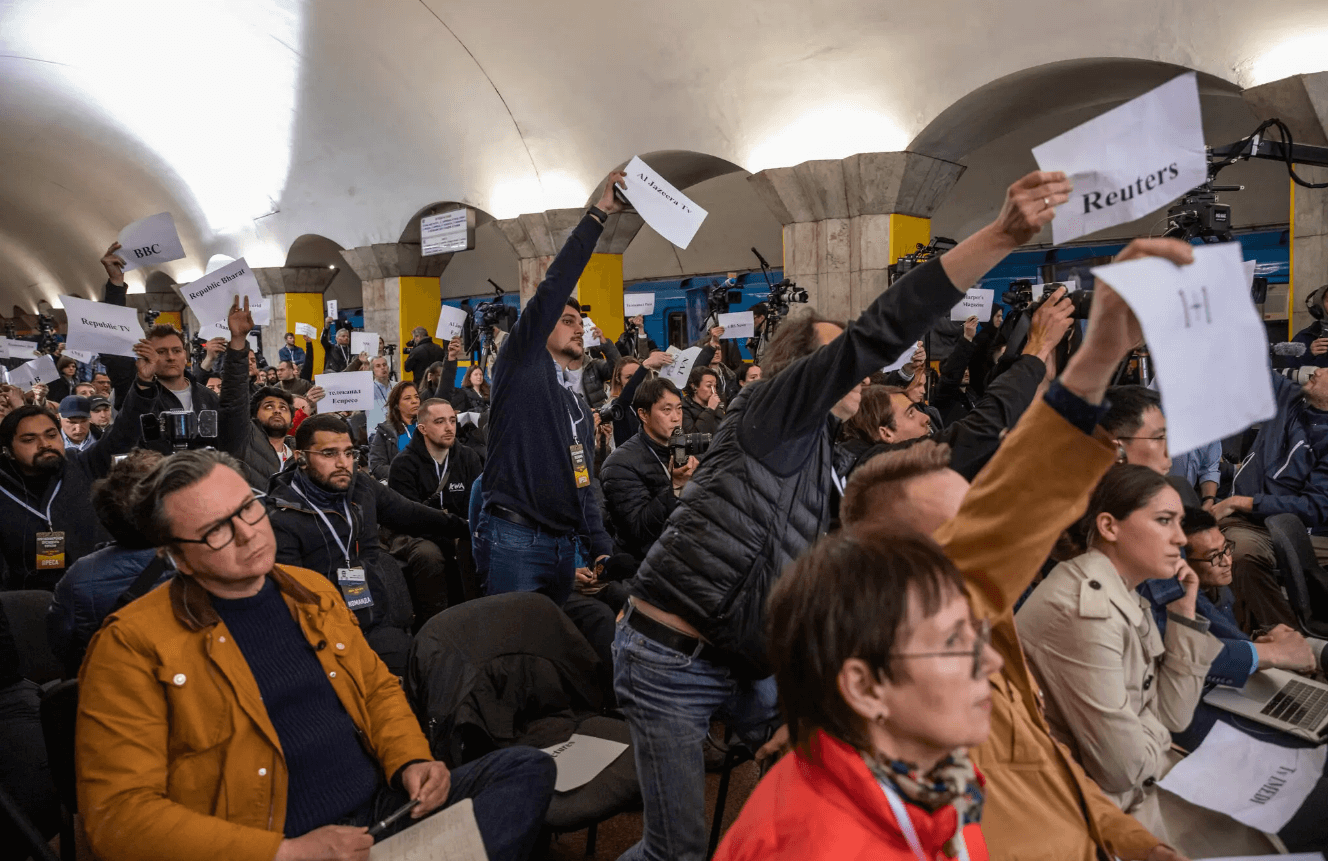On Thursday, Ukrainian President Volodymyr Zelensky signed a new media law, which lawmakers say is required to become eligible for a European Union (EU) membership, giving the National Television and Radio Broadcasting Council (NTRBC) sweeping powers to regulate all types of media.
THE LAW
Under the new law, the NTRBC, which is appointed by the president and his deputies, can shut down news websites without a court ruling if the websites are not registered. It can also send binding orders to all mass media offices, impose fines, revoke the registration of print media, and demand internet providers to block access to internet publications without a court ruling.
"Critics say a new media law signed by #Zelensky could restrict press freedom in #Ukraine.
— Donna Rapado (@DonnaRapado) December 31, 2022
Lawmakers who passed the bill said it would help meet European Union conditions for membership, but #journalists have decried it as a move toward censorship." https://t.co/3uQnk4N3AS
A ‘THREAT’ TO PRESS FREDOM
Media organisations globally have condemned the media law, calling it a “threat” to freedom of speech in the country.
In a statement, the National Union of Journalists of Ukraine asserted, “Free elections and free media are the main things that distinguish the social system of Ukraine from the regime of dictatorial Russia,” adding that, “No one has yet managed to tame freedom of speech in Ukraine. It won’t work this time either.”
Similarly, the European Federation of Journalists condemned the law as being “contrary to European values.” Declaring the law as “worthy of the worst authoritarian regimes,” EFJ General Secretary Ricardo Gutiérrez stated in July, “Media regulation should be implemented by a body independent of the government and its objective should be media independence, not media control.”
Likewise, in July, the Committee to Protect Journalists (CPJ) noted that the law “threatens to restrict press freedom in the country and would move it away from European Union standards.” In September, Gulnoza Said, CPJ’s Europe and Central Asia program coordinator in New York, called on the authorities to “abandon the bill, or at least pause its progress in parliament until the European Union can weigh in with recommendations,” adding that it “seriously imperils press freedom in the country by tightening government control over information at a time when citizens need it the most.”
Furthermore, the Ukrainian parliament’s legal department admitted that it was given less time to review the changes made in the draft law, revealing that the language does not give significant importance to the threat of introducing censorship.
Ukraine journalists' union says media bill the president signed into law Thursday is biggest threat to free speech in the country's history & its adoption could "cast the shadow of a dictator" over Zelensky: https://t.co/mauIjSpSD7
— David Lepeska (@dlepeska) December 30, 2022
ZELENSKY ADMINISTRATION DENIES ALLEGATIONS
The Zelensky administration has denied all allegations of the law being too all-encompassing. After the law was approved, Yevheniia Kravchuk, the deputy chair of the parliament’s information policy committee, admitted that the bill was “broader than the EU directive, because we needed to change and modernise our media legislation, which has not been changed for 16 years.” “It was adopted back when there was no internet at all,” she added.
Only one media organisation involved with press freedom, the Institute of Mass Information, remarked on Thursday that it was largely satisfied with the revised bill, but would monitor its implementation. Its most important concern was to ensure the independence of the NTRBC, which would require the introduction of amendments to the Constitution.
The Zelensky administration has often been accused of trying to introduce regulations to control the press since 2019.

